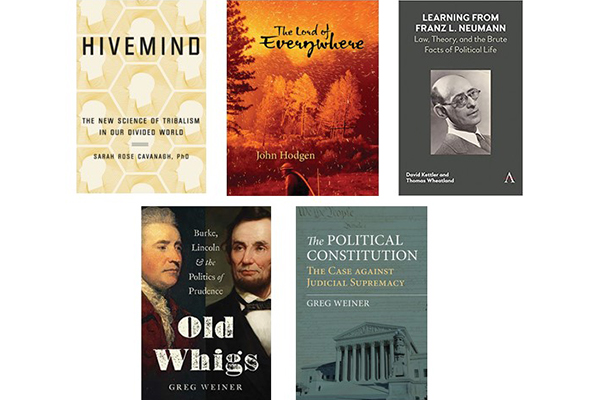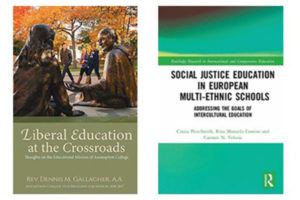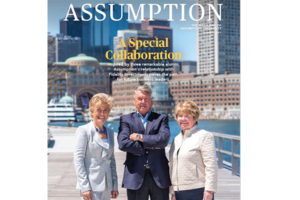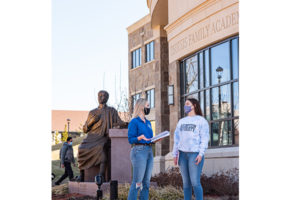
Assumption faculty are committed to excellence in teaching students and actively contributing scholarship to the community and to the academic world. Each year, a number of faculty write scholarly articles, contribute chapters to or edit academic publications, and release books that showcase their expertise. Here are several faculty who have authored books that were published during the summer.
Sarah Rose Cavanagh, Ph.D., associate professor of psychology and associate director for grants and research for the D’Amour Center for Teaching Excellence, has published a new book, Hivemind: The New Science of Tribalism in Our Divided World (Grand Central Publishing). In the book, she provides an overview of contemporary social neuroscience, a consideration of the degree to which the advent of smartphones and social media has amplified both the promises and perils of our hypersociality, and an appeal to attend to the collective aspects of our well-being. Leading a narrative journey from the site of the Charlottesville riots to the boardrooms of Facebook, considering such diverse topics as zombies, cults, and honeybees, Prof. Cavanagh leaves no stone unturned in her quest to understand our contemporary challenges.
John Hodgen, writer in residence, published a book of poems, The Lord of Everywhere (Lynx House Press), which are, according to the book description, “about strength and courage and the will to hold on, and about home and homelessness,” and the tensions “between knowing what home means and finding our true home.”
Greg Weiner, Ph.D., provost and academic vice president, published two books. The first, Old Whigs: Burke, Lincoln, and the Politics of Prudence (Encounter Books), links Edmund Burke and Abraham Lincoln in a study of the paramount political virtue: prudence. His second book, The Political Constitution: The Case Against Judicial Supremacy (University Press of Kansas), is, according to Prof. Weiner, “not just about what the Constitution means, but also about the authority and responsibility of the people to interpret and follow it.”
Thomas Wheatland, Ph.D., associate professor of history, recently published a book he
co-authored about the legal and political theorist Franz L. Neumann. Wheatland’s Learning from Franz L. Neumann (Anthem Press) examines Neumann’s social and political theory in the context of his career as a learner and teacher. A labor lawyer and publicist of weight in the Weimar Republic, Neumann devoted his 21-year exile, after 1933, to understanding the failure of arrangements supposed to be in the line of social progress. He sought to delineate a new conception of democracy as a vehicle of social change.
 Assumption Professor Recognized for Research on Racial Bias in the Classroom
Assumption Professor Recognized for Research on Racial Bias in the Classroom
Cinzia Pica-Smith, Ed.D., associate professor of human services and rehabilitation studies and coordinator of the Working with Children and Adolescents in Community Settings concentration, was recognized with the 2019 American Educational Studies Association Critics’ Choice Book Award for a book she co-authored, Social Justice Education in European Multi-Ethnic Schools: Addressing the Goals of Intercultural Education (Routledge Press). This book examines the conceptual and theoretical framework of intercultural education, contextualizing it historically, socio-politically, and as a pedagogical extension of interculturalism in the European context.
Former VP of Mission Pens Book about Assumption
Rev. Dennis M. Gallagher, A.A. ’69, who served as Assumption’s vice president for mission from 2001–17 and is currently provincial of the North American Province of the Augustinians of the Assumption, inde-pendently published the book Liberal Education at the Crossroads: Thoughts on the Educational Mission of Assumption College. The book is a collection of short columns on education that Fr. Gallagher wrote for Assumption Magazine over a period of 16 years. Together, they offer a defense of Catholic liberal education at a time when its value is being called into question by the larger culture and even within the academy itself.


